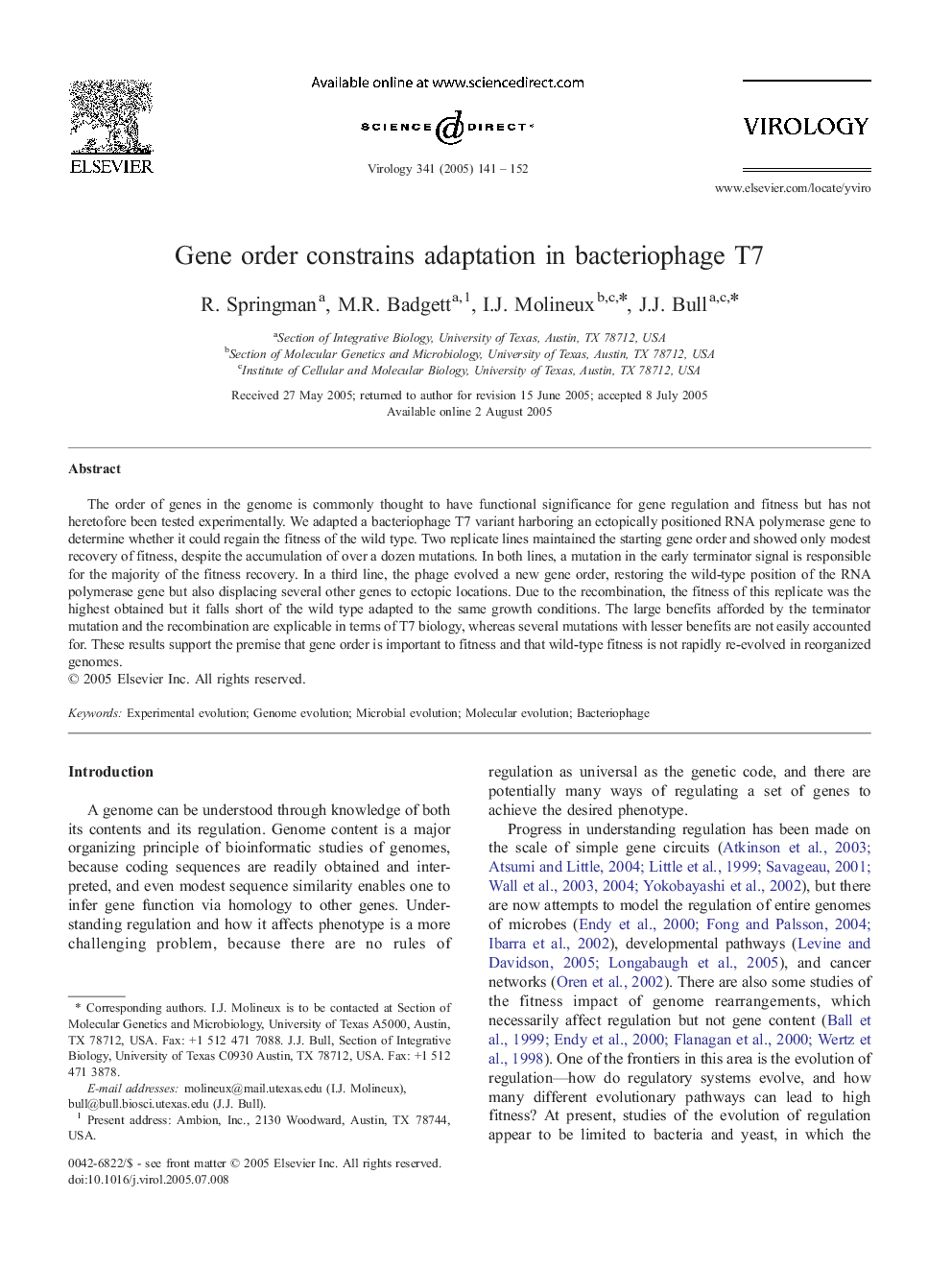| Article ID | Journal | Published Year | Pages | File Type |
|---|---|---|---|---|
| 9287975 | Virology | 2005 | 12 Pages |
Abstract
The order of genes in the genome is commonly thought to have functional significance for gene regulation and fitness but has not heretofore been tested experimentally. We adapted a bacteriophage T7 variant harboring an ectopically positioned RNA polymerase gene to determine whether it could regain the fitness of the wild type. Two replicate lines maintained the starting gene order and showed only modest recovery of fitness, despite the accumulation of over a dozen mutations. In both lines, a mutation in the early terminator signal is responsible for the majority of the fitness recovery. In a third line, the phage evolved a new gene order, restoring the wild-type position of the RNA polymerase gene but also displacing several other genes to ectopic locations. Due to the recombination, the fitness of this replicate was the highest obtained but it falls short of the wild type adapted to the same growth conditions. The large benefits afforded by the terminator mutation and the recombination are explicable in terms of T7 biology, whereas several mutations with lesser benefits are not easily accounted for. These results support the premise that gene order is important to fitness and that wild-type fitness is not rapidly re-evolved in reorganized genomes.
Related Topics
Life Sciences
Immunology and Microbiology
Virology
Authors
R. Springman, M.R. Badgett, I.J. Molineux, J.J. Bull,
